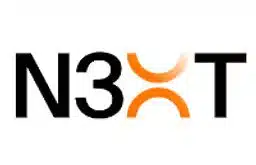The global shortage of semiconductor chips that’s plaguing the makers of point-of-sale terminals and other payment devices has left at least one technology firm sitting pretty, its founder and chief executive says. “It’s wind in our sails,” says Sam Shawki, chief executive of MagicCube Inc.
That’s because MagicCube’s technology enables users of off-the-shelf mobile phones to process card transactions on their devices. No other hardware is needed. In the face of a pandemic that has snarled supply lines around the world not only for chips but for myriad other products, MagicCube’s technology is attracting greater interest, Shawki told Digital Transactions in an interview conducted in August as part of the magazine’s research for its September cover story, “Out of the Chips.”
“This [the chip shortage] has been an element that encourages some players to look at us more closely…Everyone that stopped talking to us are back as they are looking at alternatives,” Shawki said during the interview.

More good news for the Santa Clara, Calif.-based company emerged Thursday when it announced Mosaik Partners had led a $15-million funding round. Bold Capital, Epic Ventures, and IDTech, a maker of card readers, participated in the round.
The shortage, which began to emerge last year as a consequence of Covid-19’s impact on supplier operations across a broad range of products, has deeply impacted makers of conventional payment terminals. One supplier told Digital Transactions that lead times have stretched to 26 to 30 weeks for orders that took 12 weeks to fill before Covid emerged.
By contrast, MagicCube’s software, known as i-Accept, allows merchants to run card transactions on their own mobile devices. So far, the company has introduced the technology, which enables acceptance of contactless cards branded by American Express, Discover, Mastercard, and Visa, in the United States, Brazil, and, most recently, the United Kingdom, and Ireland.
MagicCube may not have this burgeoning market to itself. Apple Inc. last year acquired Mobeewave Inc., a Montreal-based company whose technology enables smart phones equipped with near-field communication to act as point-of-sale devices with no other hardware. Since then, the iPhone maker has been tightlipped about its plans for the technology.







